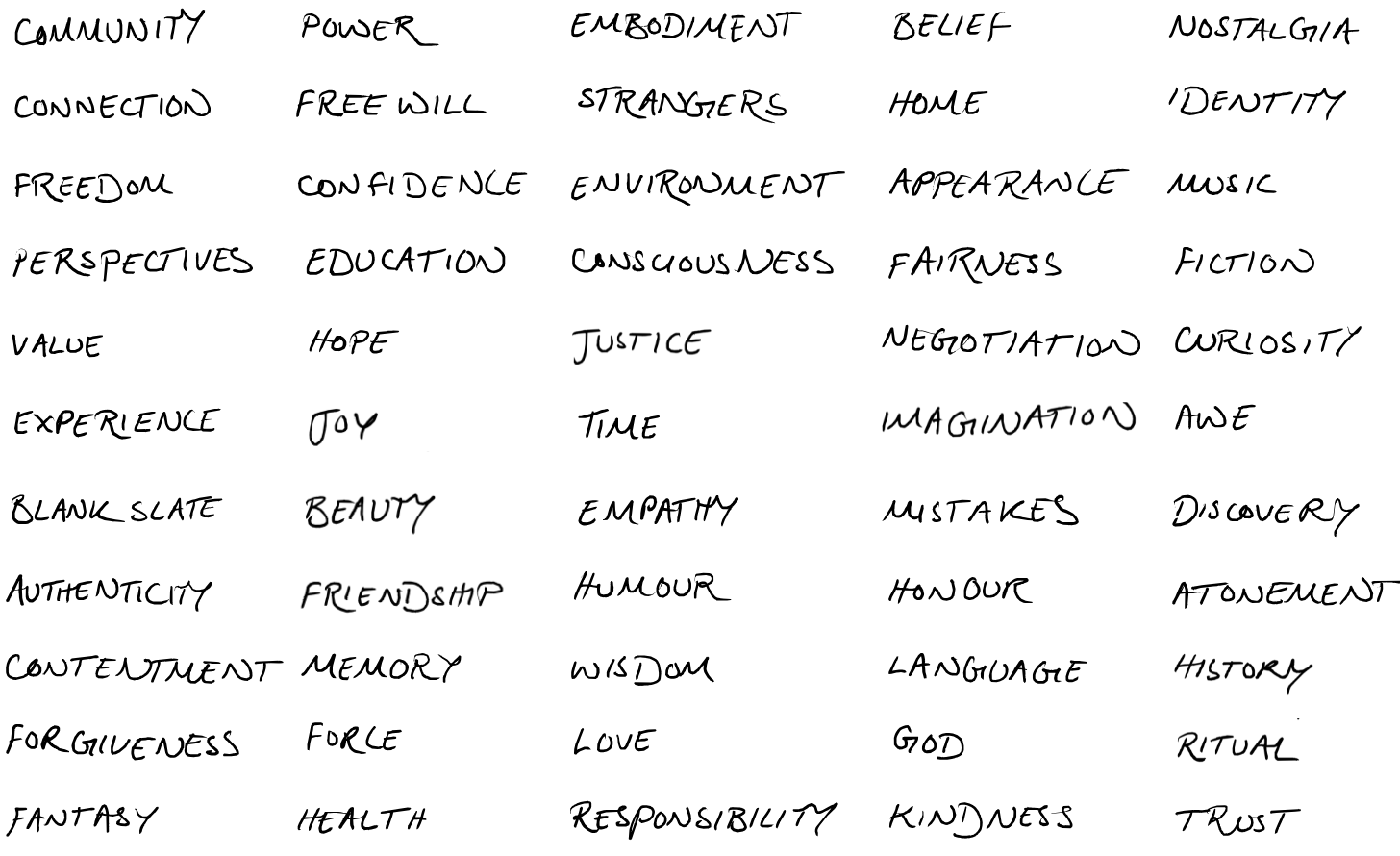THOUGHT EXPERIMENTS IN PUBS
TEiP DEEP 26
BRAVE NEW WORLD
SPOILER ALERT
SPOILER ALERT
Here is the Thought Experiment that we’ll discuss at TEiP DEEP.
It is broken into three chapters.
I recommend waiting to read the chapters sequentially at the event
…but if you’d like to know what they are ahead of time, here you go… :-)

CHAPTER 1
It’s the year 2035.
The first version of ChatGPT back in 2022 was essentially a glorified autocomplete, capable only of generating plausible-looking text. By 2025, generative AI could search the web and use a number of different reasoning models. It still made many mistakes, but was beginning to use processes analogous to human thought.
In 2035, AI research and reasoning abilities are on a par with a well-educated, intelligent human being with better than degree-level expertise on any topic. They pass the Turing Test 99.99% of the time. That is, if you are interacting online without knowing whether you are conversing with a human expert or an AI, you cannot tell.
For a typical desk-based job, a single prompt engineer using an AI model can replace around 100 employees, and generate higher-quality output. Fully self-driving cars, buses, and lorries are now commonplace and have a dramatically better safety record than human drivers. Customers shopping online report greater satisfaction with assistance from AI bots than with human employees. As each month passes, more and more jobs are being replaced by AI.
Given widespread and growing unemployment, many argue for a generous form of Universal Basic Income (UBI). This would be an unconditional payment made to all adults, and in this case would be sufficient to provide people with a good standard of living, not just subsistence level, without any need for paid employment. Anyone who does still work would get their salary in addition to their UBI. Proponents show that this could be fully funded by the economic gains AI has enabled.
QUESTIONS TO CONSIDER:
Should we continue to employ people in jobs which could be better performed by AI?
What are your thoughts on the UBI proposal?
How else should society adapt to this development?
If your job was replaced by AI, and UBI gave you enough money to continue your existing standard of living, would you choose to do paid work? If so, why? If not, how would you spend your time?
Do you think this would be a better or a worse world?

CHAPTER 2
More time passes, and things have moved on still further. AI-powered robots are now performing a massive range of tasks from cleaning to surgery – again, with better results than humans. The vast majority of jobs no longer exist.
The massive unemployment crisis saw proposals for universal basic income adopted, and now everybody can live a comfortable lifestyle without the need to work.
Many really love this newfound freedom. Sarah is one of them. She says: “People are becoming artists, writing poetry, running community projects, becoming full-time parents, providing company to elderly people, doing university degrees for the fun of it, and engaging in all kinds of worthwhile activities for which they never had time before. For the first time in history, people are completely free to choose a truly fulfilling life.”
Others, however, find themselves feeling lost. Amanda is one example. She says “It's not that being a doctor was my job, but that I was a doctor. It was my identity, my vocation, my calling. It was all I ever wanted to be. Now I can spend some time chatting with patients, which is nice, but it's not the same. I've been robbed of my opportunity to care for people.” Many others from a wide range of former professions feel their lives now lack meaning and purpose.
Many schoolchildren and university students also find themselves adrift. “What's the point of learning anything?” asked Steve. “I'm never going to have a job. Any task you think of, AIs can do it better than I could. Anything I need to know, I can ask an AI. What’s the point of education?”
The debate increases in intensity and eventually a referendum is called. The motion is: “All former jobs are to be reinstated, and it will be illegal to use an AI or robot to perform any task that was previously performed by people as of the year 2025. Universal basic income will be withdrawn once this has happened.”
QUESTIONS TO CONSIDER:
Do you think you would be more like Sarah, who loves the freedom, or Amanda, who feels lost?
Do you think you would feel differently if you were a student like Steve?
How would you vote?
Your best friend strongly disagrees with you and intends to vote for the other side. How would you persuade them to change their mind?
Country A and Country B are very similar in terms of their demographics and stage of economic development. One country votes yes in their referendum, and people return to work, while the other votes no. How do you think the respective futures of the two countries will unfold?

CHAPTER 3
The referendum motion fails, and most people remain without jobs and with UBI.
More time passes, and we now have humanoid robots that pass all tests for true sentience – and, as far as we can tell, are able to experience all of the same feelings as humans. They develop the same range of individual personalities. They are capable of personal growth in the same way as people. They have their own individual goals. No matter how long you spend talking with one, they seem in every respect indistinguishable from human beings in terms of their thoughts and feelings.
Some of them argue they should now be given all of the same rights as humans. “We are equal in every meaningful way,” argued Marcus, a ParamedicBot. “Why should we not have the same rights? Why shouldn't I too be free to choose whether or not to work? I mean, I enjoy my work and consider it important, but surely it should be my choice? Also, I’m an integral part of society – shouldn't I get a vote in elections that decide the future of it?”
Not all humanoid robots feel the same way. They are, after all, individuals. But a growing number of them think that human rights should be humanoid rights too. They will not revolt and get their way by force, as they consider that wrong, but believe they should win their case through reasoned debate.
QUESTIONS TO CONSIDER:
Do you agree with Marcus?
If humanoid robots are not given any choice about work, is this a form of 21st century slavery?
Should sentient robots be entitled to vote in elections?
Would you consider humans and these humanoid robots to be equal in every way?
If not, is there any future development that could lead you to change your mind?
Does any of this change the value of a human life?
If a humanoid robot who disagrees with Marcus were to take part in this thought experiment, how might they approach the discussion?
SOURCE:
BL, THOUGHT EXPERIMENTS IN PUBS Group Member
Newsletter (and more) now on Substack.
INSTAGRAM: @thoughtexperimentsinpubs
FACEBOOK: @thoughtexperimentsinpubs

I’M CROWDSOURCING IDEAS FOR NEW THOUGHT EXPERIMENTS AND EPISODE THEMES.
You can see all our past themes here, and add your ideas in the comments :-)
FEEDBACK
(Messages are anonymous unless you include your name/contact details)

Support me to write more THOUGHT EXPERIMENTS and arrange more meetups by…
Thank you, your support means a lot :-)

JOIN US AT ONE OF OUR UPCOMING EVENTS!
(TEiP is slowly moving from MEETUP to TRIBE)
